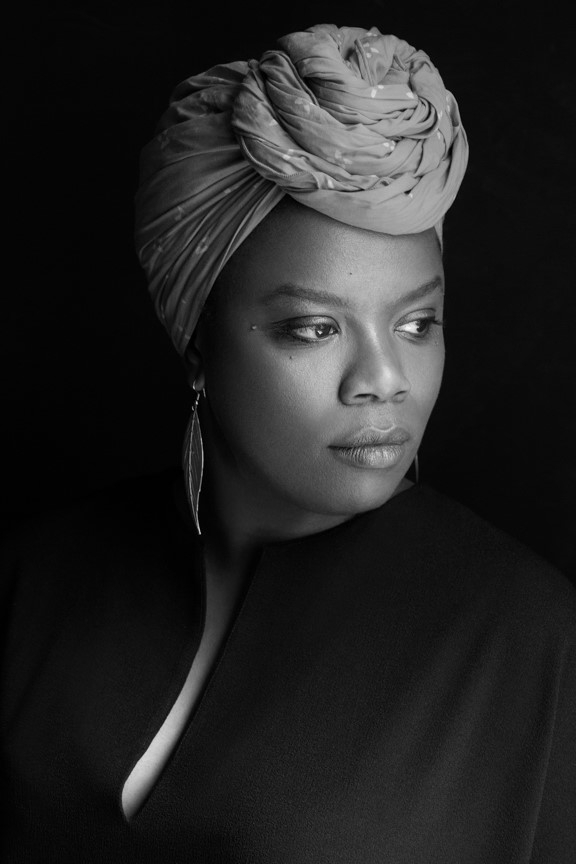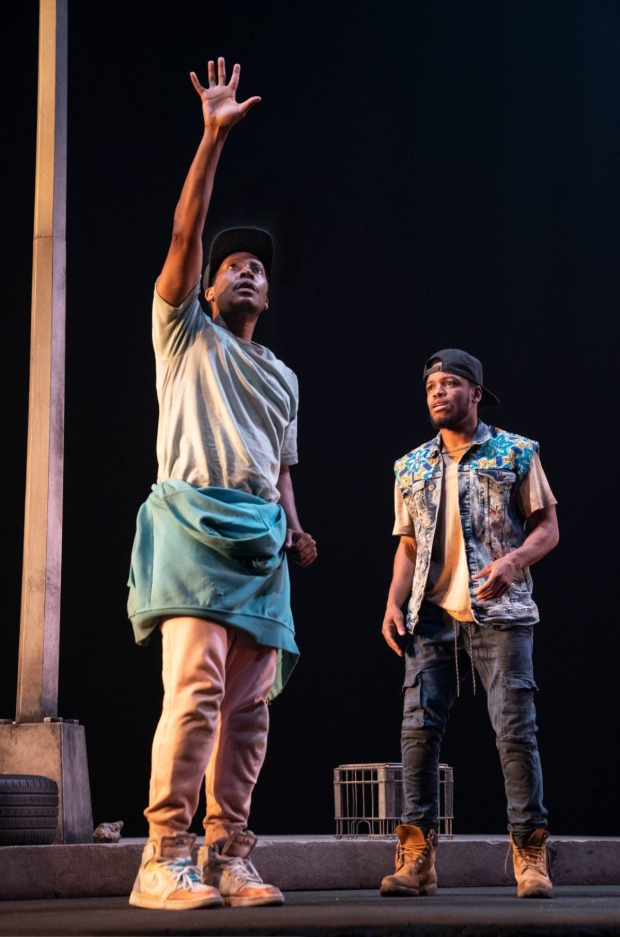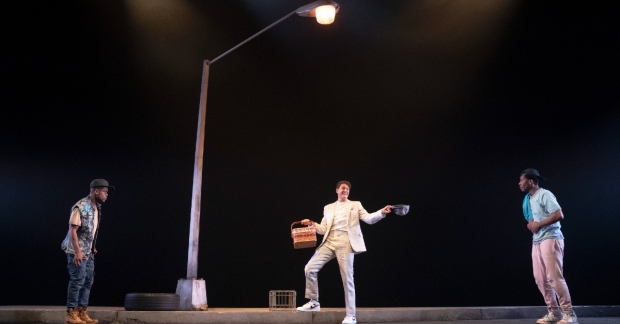Interview: Antoinette Chinonye Nwandu Is Reinventing the Stage and Making History
Nwandu’s ”Pass Over” just opened at the August Wilson Theatre.
Playwrights rarely become household names, but Antoinette Chinonye Nwandu could very well be on her way. A fresh and vital new voice on Broadway, Nwandu’s Pass Over has obtained the rapturous attention that a writer would happily wait a lifetime for since its Steppenwolf debut in 2017.
Inspired by Waiting for Godot and the Exodus saga, Pass Over centers on two young Black men dreaming of escaping their circumstances. The play asks audiences to stew in their privilege and reflect on the uncomfortable truths brought to light about racism and police brutality, and how reveling in Black joy is a form of resistance for Black people. It also challenges the norms of the Broadway theatergoing experience.
TheaterMania spoke with the celebrated playwright about finding joy in writing, channeling her gifts into an urgent mission, and setting standards for a fair, welcoming, and inclusive entertainment industry.

(© Beowulf Sheehan)
You’ve been working on Pass Over for some years. How did you decide on the form of the piece?
I didn’t decide on the form; I discovered it. I feel like form is something that you discover when you’re in collaboration with the unknown. Or at least that’s how my process feels.
Has your artistry been altered in any way by your community-driven work?
Community care is integral to my work and my positionality in the world as a Black woman. In order to care for my community, I must care for myself. One that self-care is locked in, community care becomes a practice and way of life. You get to a place where you’re like, “You have to care for one another!”

(© Joan Marcus)
As writers, we sometimes have a difficult time finding joy in writing. How do you find joy in the process?
Some ways are very practical, and I think writing is seen as a very sedentary activity in modern times. I get up; I dance; I make playlists. I do arts and crafts. Sometimes when I’m done with my work, I’ll create visual storyboards, I’ll do other things that are more visual to make the work more fun. When you really care and are in the pursuit of something true, then I think that in and of itself, the work itself is the fun.
Although Pass Over isn’t a musical, there’s musicality to your play. What function do you see songs having in Pass Over?
In this iteration of the play, the character of Mister is the one who does the singing. I think the songs have a kind of seductive quality that Gabe Ebert wonderfully carries out. Thematically I was interested in the song selection. He sings “Oh, What a Beautiful Mornin'” from Oklahoma!, “What a Wonderful World,” and “Somewhere Over the Rainbow.” I have a real hunch that when people say “Make America Great Again,” that the America that they’re talking about never really existed, that it just existed in people’s cultural imagination and because of movies. I think Mister loves the America he grew up seeing in the movies.

(© Joan Marcus)
Danya Taymor is one of your longtime collaborators. What makes a successful collaboration between a director and a playwright? How would you describe your relationship?
The key to a successful collaboration is mutual respect. You show respect, and you have to learn to communicate with that person, how to talk to them, and what that person cares about, feels, and thinks. Those are the biggest things because everybody has craft and talent. Everybody is going to do great work, and everybody is going to do poor work, and we all show up every day. Then there’s the relational part, how do we relate to one another in a way that keeps the work central and the piece of work honest?
You’re also a producer on the play, and Pass Over has established a precedent with its producing model by bringing people a handful of early-career producers into the fold. Do you think that this producing model has granted you more control and autonomy?
I don’t think it’s necessarily autonomy because I think of theater as a collaborative process. Autonomy in the theater is a bit of a detriment; we need to be collaborating at all times. But what I think is great about our model is that I have a seat at the table as far as the financial, marketing, and even some of the design and advertising elements of the show. I like having a say and having my point of view acknowledged and understood.









